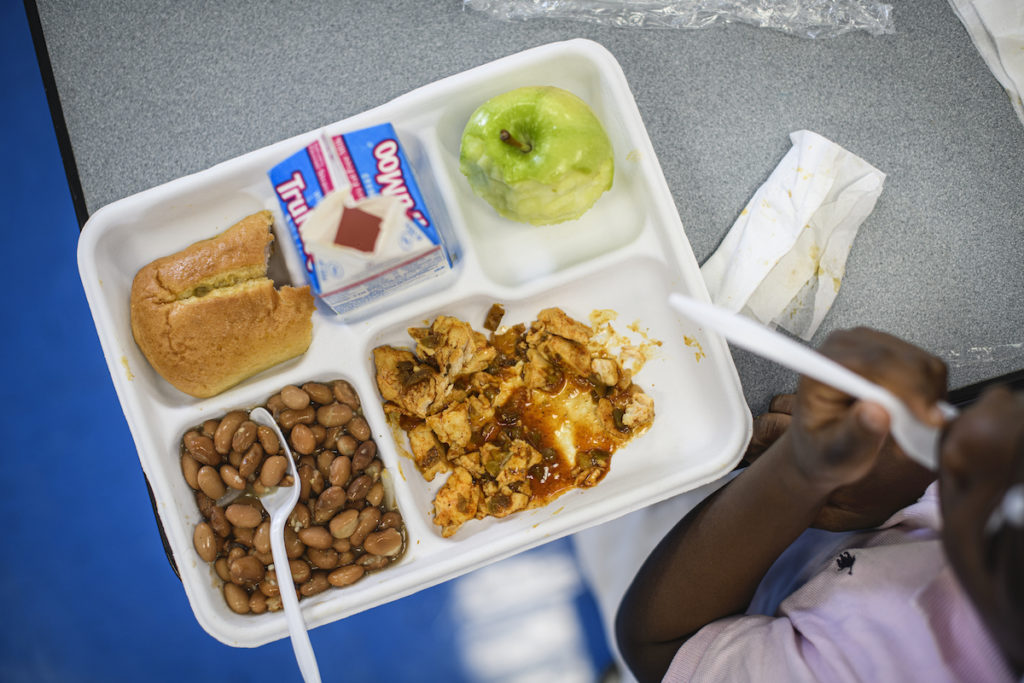
Middle Tennessee school districts are bracing for potential fallout from two Trump administration decisions that could change how schools provide food for students.
The USDA announced last week that it was cancelling $1 billion in federal funding for pandemic-era programs designed to keep local food products in local communities.
Listen: The Promise podcast
One of these programs — the Local Food for Schools (LFS) Cooperative Agreement Program — awards money to states to buy local food for schools and child care institutions. The Cheatham County School District relies on money from the program to purchase food from local farmers to supplement their school nutrition program.
“Receiving this grant allows our district to lower our food costs as well as provide fresh, local food to our students,” Tim Adkins, the district’s communications director said in a statement to WPLN News.
“We hope they reverse this decision.”
The program funneled $660 million into school districts nationwide with a priority on purchasing food from historically underserved producers and processors.
The move also comes as Republican lawmakers are pushing for deep cuts to social programs — like free school meals — under the budget reconciliation process.
One proposal is to modify the Community Eligibility Provision, which allows high poverty schools to offer all students free breakfast and lunch without collecting household applications. Schools qualify for the provision if 25 percent of their students are enrolled in federal assistance programs, like the Supplemental Nutrition Assistance Program and Temporary Assistance for Needy Families.
Republican lawmakers are seeking to raise the required share of students per school to 60 percent.
Doing so would kick more than 24,000 schools off of community eligibility and 12 million students would no longer automatically qualify for free meals nationwide, according to the nonprofit Food Research & Action Center. In Tennessee, 598 schools and 280,726 students would be affected. In Davidson County, 38,156 students in 69 schools in would be impacted.
Since only a small percentage of their students qualify for need-based programs, Wilson County Schools won’t be deeply impacted by this proposal if it comes to fruition, according to a statement provided to WPLN News.
However, the district’s nutrition department does take issue with another proposal requiring schools to verify the family income of every student who applies for free or reduced meals — noting it would be time-consuming and require additional staff.
Proponents of the change say it will “increase program integrity” and “preserve the fiscal sustainability of the program.”
However, Bart Barker, Wilson County Schools’ Public Information Officer, stressed that they haven’t received any guidance from state leadership about the long-term effects of these proposals on the district.
“Larger metropolitan areas and low-income rural areas will be affected the most,” the statement read.

